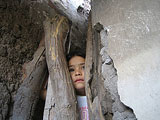Recession Puts Honduras at Risk
By Eliot Brockner for ISN
According to a report published this month by the International Monetary Fund (IMF) on the impact of the global recession on developing nations, Honduras is one of three nations in the Americas most vulnerable to the ongoing economic crisis.
The list of challenges facing Honduras is daunting. Due mainly to an anticipated decrease in demand for commodities and manufacturing, the lifeblood of the Honduran economy, Honduras is facing a external page2.6call_made percent contraction in its economy in 2009 as well as rampant unemployment, which reached external page27.8call_made percent in 2008 and is likely to rise due to the shrinking economy.
The lack of formal opportunities has contributed in large part to many of the ills plaguing Honduras: The nation has one of the world's highest murder rates (with 4,473 committed last year out of a population of 7 million and the external pagehighest murder ratecall_made in Latin America), an increase in gang-related activities and street violence, and the omnipresent danger associated with taking public transportation, especially rapiditos, small vans that make frequent stops and are a prime target of armed hijackings.
Yet perhaps the greatest danger Honduras faces is the growing presence of organized crime, mostly from Mexican drug trafficking organizations (DTOs) within its borders. A external pagereportcall_made published by the Honduran daily La Prensa, a highlighted the nation's growing strategic influence in trafficking illegal drugs (mostly cocaine) to the US. Honduras' vast, unpatrolled coast, mountainous borders with Guatemala and Nicaragua, and sparsely populated eastern jungle are favorable geographic features for smugglers looking to evade authorities. Within the past few weeks alone, authorities have found boats and planes transporting large amounts of cocaine in external pageFarallonescall_made, external pageUtilacall_made and other points along the Caribbean external pagecoastcall_made.
But it is not just Honduras' peripheral and coastal regions that are facing an increase in drug trafficking and the organized crime that controls it. According to the website external pageSouthern Pulsecall_made, the Honduran government allocated 12 percent of its police force to fighting organized crime in 2008, using Tegucigalpa and San Pedro Sula as its center of operations, implying that organized crime is at work in Honduras’ two largest cities.
A December 2008 Stratfor report on Mexican organized crime mentioned the arrests two months earlier of Sinaloa cartel affiliates and the location of safe houses along a north-south highway in Honduras’ interior. Additionally, Juan Carlos Garzón wrote in his 2008 book Mafia & Co: La red criminal en Brasil, México, y Colombia of a “strategic triangle,” formed by the Bay Islands, unpopulated islands and lagoons in Gracias a Dios department, and the border town of El Guasule on the Honduran-Nicaraguan border, which allows control of trafficking throughout much of the country.
Further proof comes from testimony of people living in Honduras, who have reported a rise in drugs in small towns not on the tourist trail. Places once traditionally immune to the flow and sale of drugs are now being targeted. Illegal drugs and the presence of dealers and small-level traffickers have been slowly infiltrating the towns and villages on the Guatemalan/Honduran border and well into the interior of the departments of Copán and Santa Bárbara, according to a former US state department official in Honduras. Thus, some of the drugs smuggled into Honduras stay there, creating a local market where previously none had existed.
Corruption has long been a part of Honduran politics, but recent external pagereportscall_made indicate that DTOs may be behind some of the bribery. This is a tactic used in Mexico, where high-level military, police, and political figures have been linked to organized crime. The violence that has there is the result of the country's military fighting back against the cartels, which were able to operate with near impunity for years under a corrupt system.
Yet Honduras’ underpaid and overstretched police and military are far less developed in manpower and technology than the Mexican military and would not be able to independently handle the presence of Mexican DTOs. They may also be the easiest to target: Hondurans have the third lowest confidence in their police in the Americas, according to a study done in 2007 by the external pageConsorcio Iberoamericanocall_made suggesting that the police are already fairly corrupt.
The US seems to have finally woken up to the gunshots being fired on both sides of their border. Under the new terms of The Mérida Initiative, The US has external pagepledgedcall_made US$1.5 billion over the next three years to combat the violence that has plagued Mexico since President Felipe Calderón’s pledge to eliminate organized crime. However, of the US$400 million to be allocated in 2009, only US$65 million is external pagedestinedcall_made to combat drug trafficking in Central America and the Caribbean. Given the disadvantage already facing many nations in the region, including Honduras, as well as the size and power of Mexican DTOs, this number is woefully inadequate.
As DTOs continue to find it harder to control certain operations in Mexico, they may look to expand into weaker nations whose political systems are corrupt, whose police and military are scarce and not trusted, and whose population is unemployed. A Honduras further weakened by the global recession would likely be high on their list.

